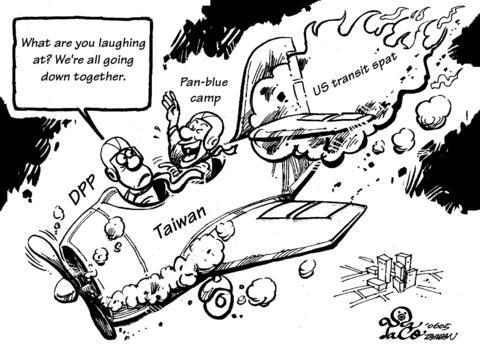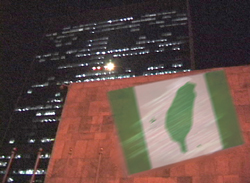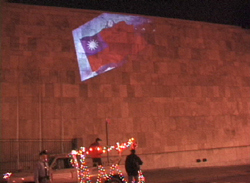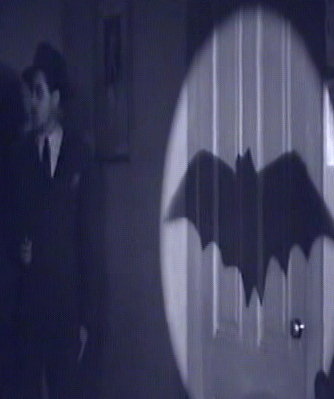That was the question the China Post‘s Joe Hung posed in his column on Monday. Let me begin by stating that it’s entirely fair for Hung to enumerate the beneficial things Chiang did for Taiwan (though at the same time, some of the things he lists are debatable, even refutable).* And I certainly take his point that historians should endeavor to tell all the facts, not just cherry-pick the ones they happen to like.
But when he says that history isn’t judgment, I confess to being a bit baffled.** Can we now expect the China Post will stop slamming President Chen Shui-bian’s record? Because by definition, Chen’s record IS history, isn’t it? And didn’t Dr. Huang just finish telling us that that’s something we’re not ALLOWED to judge?
By strange coincidence, I ran into a quote during my vacation arguing rather the opposite, by Yale Classics professor Donald Kagan:
Finally, I must explain and defend my use of what has been called "counterfactual history". Some readers may be troubled by my practice of comparing what happened with what might have happened had individuals or groups of people made different decisions or taken different actions. I believe that anyone who tries to write history rather than merely chronicle events must consider what might have happened; the only question is how explicitly he reveals what he is doing. Historians interpret what they recount, which is to say they judge it. They cannot say that an action was wise or foolish without also saying or implying that it was better or worse than some other action that might have been taken – that, after all, is "counter-factual history". [emphasis added] All true historians engage in the practice, with greater or less self-consciousness. Thucydides, perhaps the greatest of historians, does this on many occasions, as when he makes a judgment of Pericles’ strategy in the Peloponnesian War: "such abundant grounds had Pericles at the time for his forecast that Athens might quite easily have triumphed in this war over the Peloponnesians alone." (2.65.13; emphasis added [by Kagan])
I think there are important advantages in being so explicit. A clear statement puts the reader on notice that the assertion in question is a judgment, an interpretation rather than a fact. It also helps to avoid the excessive power of the fait accompli, making clear that what really occurred was not the inevitable outcome of superhuman forces or of equally determined and equally mysterious forces within the historical actors. Instead, what happened was the result of decisions made by human beings acting in a world they [did] not fully control. It suggests that both the decisions and their outcomes could well have been different. I continue this practice in examining the life of Pericles.
— p xiii-xiv of Donald Kagan’s Pericles of Athens and the Birth of Democracy
I perhaps should have underlined Kagan’s claim that all true historians judge history, whether they’re conscious of it or not. Because after making a point of admonishing his readers not to judge history, Hung goes on to do exactly that:
The fact, however, is that despite [the 2-28 Massacre and the White Terror], Chiang was a good autocrat…But for [Chiang’s] defense force and American intervention, Taiwan would have been a province of the People’s Republic of China before the end of 1950.
Now, I happen to agree it was A GOOD THING that Chiang helped prevent Taiwan from falling to the communists, but I also recognize that that sentiment is a JUDGMENT. A judgment with which most Marxists, and more than a few leftists, are liable to disagree.
I’ll close with a story about a friend of mine, a semi-professional videographer. Fellow went down to 2-28 Memorial Park with an interpreter on February 28th to conduct a few interviews with family members of 2-28 Massacre victims. He’s hoping to do a documentary on 2-28 sometime, though he apparently has other projects on the front burner right now. Anyways, instead of a FEW interviews, he was surprised to find that a long line of Taiwanese old-timers began to form, each wanting to tell the wai-guo-ren*** with the camera their story.
Their stories were depressingly similar. "The KMT army came to my house one night and took my father away, and we never saw him again. I just want to know the truth of what happened to him." This my friend heard, over and over.
I wasn’t there, so I don’t know what questions my friend asked of the interviewees. For that reason, I don’t know if it even occurred to him to ask them whether they thought Chiang Kai-shek was "all that bad".
I’ll venture to say though, that they would have scoffed at the notion that that’s something they shouldn’t be allowed to judge for themselves.
* Particularly amusing is Hung’s statement that Chiang’s KMT controlled runaway inflation. While it is true that there was high inflation in Taiwan at the end of World War II, inflation increased – not decreased – during the first few years of KMT administration of the island. The uprising that occurred on February 28, 1947 was in part a reaction against the KMT’s gross economic mismanagement, if not outright thievery.
It takes a bit of nerve for Dr. Hung to praise the KMT for controlling hyperinflation, when in fact it was something they were largely responsible for.
** It should be clear what Hung’s Georgetown professors were driving at. It is indeed a tricky thing to judge those who have gone before us by our own moral standards. The ancient Greeks and Romans lived in a different moral universe from our own, and I don’t see much use in spending a lot of time denouncing them for keeping slaves. The question then, I think, is whether the KMT of Chiang’s time also dwelt in a different moral universe, or whether it was one which more closely resembled our own.
I would argue the latter. I suspect that if one looked carefully enough, one could still find original records of slave sales in ancient Rome. Why would anyone conceal such records, when they were a normal part of the world in which they lived? Contrast that to the KMT’s behavior after 2-28; they concealed evidence, and even attempted to justify their conduct by inventing a cockamamie story about there being 100,000 Japanese troops hiding in the Taiwanese mountains waiting – waiting! – to join forces with the Taiwanese rebels. [note to self: find the link for this later]
100,000 Japanese troops hiding out in the Taiwanese mountains. In 1947. Riiight.
In the world of law, people who commit crimes sometimes try to plea criminal insanity. "I didn’t know what I was doing – I didn’t know what I was doing was WRONG." But such a plea is usually not taken very seriously if it can be proven that the suspect tried to lie or conceal evidence after the fact.
Maybe that’s because the act of hiding evidence is not usually associated with men who are innocent.
*** Mandarin for "foreigner"
UPDATE (Mar 27/07): A good Johnny Neihu piece mostly devoted to this topic. He expresses astonishment that Chiang could not have known what his subordinates were doing in Taiwan around the time of the 2/28 Massacre:
Unaware! Chiang was a control freak who distrusted his subordinates so deeply that he countermanded his generals mid-battle. At one point he held 82 government posts simultaneously, including chief of the government, army and party, plus — rather bizarrely, the presidencies of the Boy Scouts and National Glider Association. To believe that he could have been "unaware of conditions on Taiwan" is pushing it just a little.
I didn’t know that. Though Neihu’s list DID jog my memory about something else – that Chiang’s army was based on Leninist lines, with each unit having both a military and a POLITICAL officer. The job of the latter was to spy on the former, to make certain he was loyal. If it looked like the military officer might be mutinous, the political officer was authorized to put a bullet in his head.
It’s therefore hard to imagine Chiang not being aware of the situation in Taiwan with all of those political officers floating around, each one of them regularly reporting back home.



